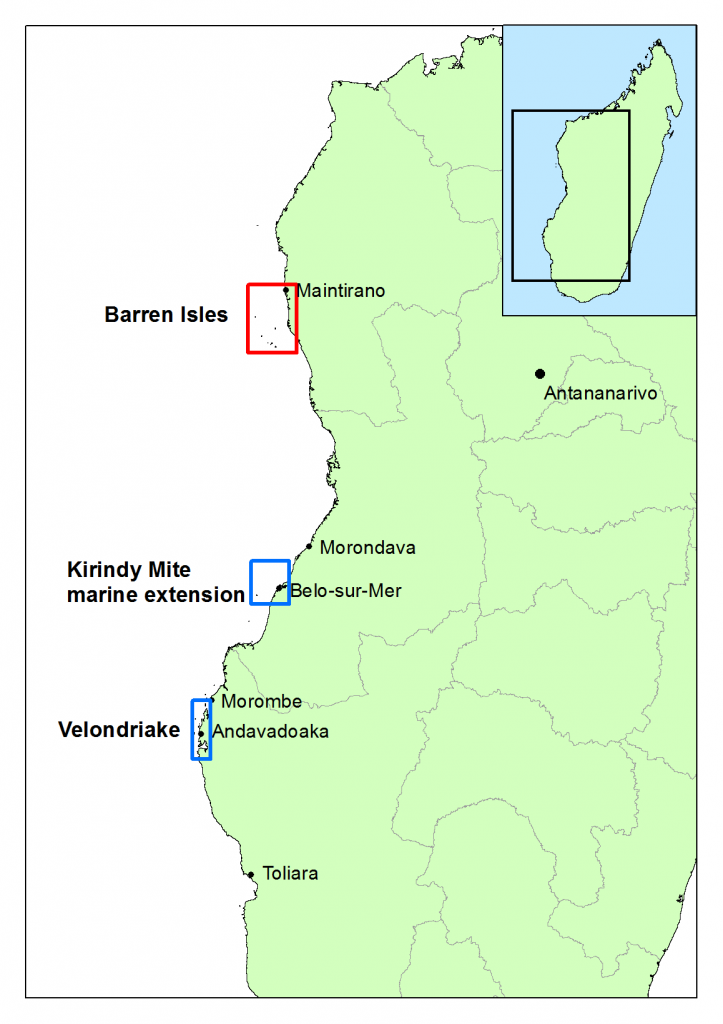By Kame Westerman, Velondriake LMMA Coordinator, Madagascar
Human migration can be influenced by a number of factors – political, social, economic, physical, and even cultural. In southwest Madagascar, where Blue Ventures works, migration is an important factor to consider when working with local communities; for example, our messages about sustainable marine conservation and healthy families are difficult to deliver to people who are not resident. Here, many of the local sea-faring Vezo people lead semi-nomadic lives, moving along the coast throughout much of the year in search of high-value sea products such as shark fin and sea cucumbers.
We recently conducted a short survey with 161 fishers across 10 villages within the Velondriake locally managed marine area, in which we asked several questions about migration patterns. Of those we surveyed, over 1/3 were identified as seasonal migrants who travel an average of 6 months out of the year; over 3/4 were men. We also asked about the their parents, and whether they migrated as well to see if there was any familial trend: sure enough, migrant fishers were nearly 6 times more likely to have had migrant parents. Importantly, roughly 1/3 travel to Belo sur Mer, a town about 200k to the north, while about a half of the migrants we surveyed said they travel to Maintirano, a town even farther to the north (see map below).
Blue Ventures has recognised the importance of working with these migrant fishers along the entire west coast of Madagascar. In 2009, Blue Ventures began working in Belo sur Mer, continuing to support community led conservation efforts and focusing on temporary mangrove closures to increase incomes. And just last year, Blue Ventures opened a third site in Maintirano. In union, these three sites can target a difficult to reach population of stakeholders, proving support to sustainable local fisheries management.
For further information about migration in Madagascar, please read this Blue Ventures report


